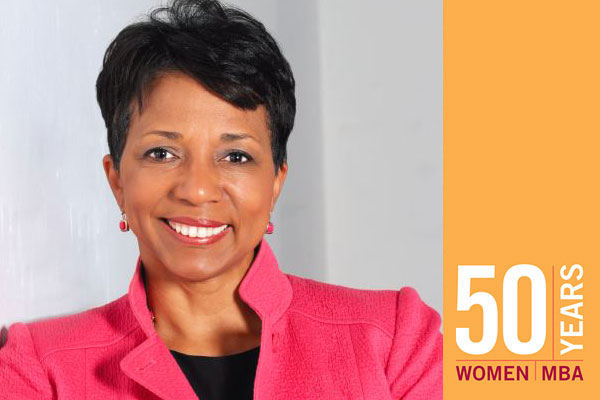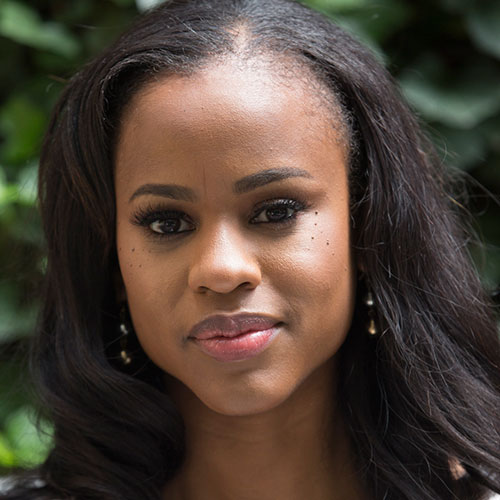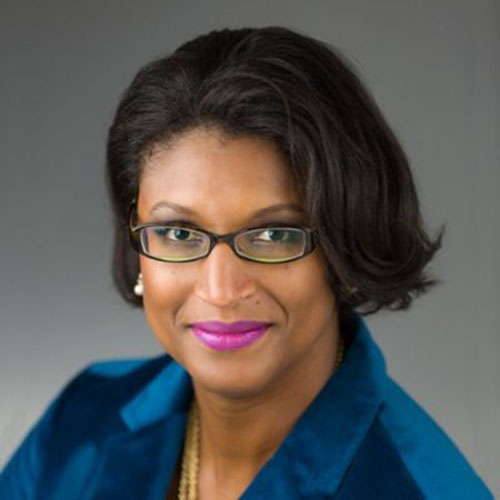
Gail Morales
Biography
Gail Morales is the project efficiency executive for TD Bank, focused on building an efficient and agile platform to drive the corporate strategy. Previous to this role, Gail was the head of TD Bank's US Project Management Office, where she was responsible for project governance and control over a $500 million portfolio. She has been with TD Bank since 2015.
Gail brings a wealth of management and leadership expertise to her work. Her career spans over 25 years in financial services, strategy, and consulting. She has served in senior roles with global Fortune 100 companies, managing both domestic and global teams leading change.
What impact did HBS have on your life and the life of others?
Throughout my career in banking, there are many times when I was the only woman in the room, and certainly the only African American. You're often underestimated for what your capabilities are; it's something I've experienced and continue to experience. Frankly, I think many of us do. We oftentimes walk in the door with a deficit of trust—it's necessary to prove we belong there. That means you have to know what you want and what your capabilities are, and you have to continue to push.
With the work I do in transformational change and project management, there really isn't a guidebook, although of course there are processes to follow. But much of it is also guided by intuition. So you have to build relationships, and trust, which is especially important when the other people you're working with don't look like you—it's not an automatic thing.
The causes I've been involved with over the years have remained constant: the empowerment of women; the environment; and education. That passion led to serving on the board of the YWCA of Greater Atlanta, where we supported child care services for low income families, homeless shelters for families with older children, women's health screenings, and after-school STEM programs for hundreds of Atlanta school-age girls. I was also a member of the Trust for Public Land's (TPL) Georgia Advisory Board, an organization devoted to conserving land and creating parks for people. In Atlanta, TPL provides support for the MLK National Historic Site and made the initial land purchases for the Atlanta Beltline, creating a network of parks and walking trails from what was once a wasteland of abandoned property. One project I'm particularly proud of from my time with TPL is the transformation of Proctor Creek. It used to be a polluted waterway running through a predominantly black neighborhood in Atlanta and was also a source of the highest incidence of West Nile Virus in the area. Since then it's been cleaned up and become a safe place for families and children to enjoy.
Education is my third focus, and there I have a personal connection. When my son, Matthew, turned 3, we realized he had a learning difference. The doctor told us that if we did not intervene early, and appropriately, he would not attend college. At the time, my husband [David Morales (MBA 1989)] was travelling quite a bit for work, and so was I. We decided one of us needed to be home with Matthew and our daughter Rachel. And that was me. My job became advocating on Matthew's behalf, as the danger can lie in putting the child in a remedial class, when ability is not the question. That's what fired me up, to be honest. I knew what he was capable of doing. So finding the right school, making sure he was mainstreamed, and finding the right assistive technologies to help him was new ground at that time.
Doing this work for Matthew made me realize that when children have learning differences, it can be taxing on a family that doesn't have the extra time to speak up on their child's behalf. These children did not have a voice, nor did their parents have a voice in the PTA. So we established a committee for children with learning differences at Matthew's school, and then a committee for the PTA across the city of Atlanta. Out of advocacy for my son, other children benefited.
During my seven years out of a corporate setting, I consulted on my own and was an interim COO for a nonprofit organization. I didn't disconnect completely. But I do believe that the concept of work-life "balance" doesn't exist—it's always going to be tilted one way or another, depending on your circumstances. Do I think my career suffered as a result of my decision to take that break? Yes. I do. But I would make the same decision again, because it was impacting a life I was responsible for. The moral of the story: Your career is a marathon and not a sprint. And the story has a happy ending: Matthew graduated from Emory University last year with a degree in biology and is now working in executive search in the life sciences area.
Before I returned to work, I realized I had not been as connected to HBS and other business organizations as I could have been—you're always so busy when you have small children. So I rejoined the HBS Club of Atlanta, and soon became the club's president. We organized a program on people who leave the workforce and come back and developed a women's special interest group within the club as a result of that event's success. Over my career, HBS opened doors that would not have been open to me; the exposure to all types of companies and people made a difference in how I viewed what my career and potential contribution could be after graduation. In addition to serving as president of AASU and working on a number of issues to strengthen the community of black students at HBS, I made new friends who enriched my life because of their differing point of view. So stay in touch with your networks—it's much easier to do today thanks to social media.
I returned to Bank of America in 2005. I had left the company on very good terms, so I went back in as a senior vice president and within a year was ranked in the top 1 percent of the company. Was the transition difficult? Yes. But I'm one of those people who doesn't give up, right? There were other women at Bank of America who had moved into more senior roles while I was out, so I could talk to them and they could advocate for me. And fortunately, I don't think my skill set atrophied too much during my time away. In fact, I think I learned more by working with people in the PTA and the nonprofit sector who were different from me. So the learning doesn't stop simply because you're not in a corporate environment. Doing things differently, and working with people who have a different point of view, makes you a better leader.
Clearly, there are still challenges in being an African American in a large corporate setting. There's still work to be done. But the work is not all our work. We have to count on others who don't look like us to be helpful in this process, too.

